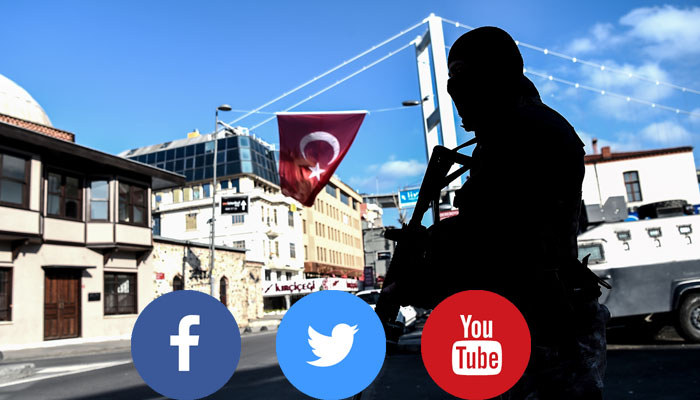Turkey has fined Facebook, YouTube, Twitter, Instagram, LinkedIn and TikTok TL 10 million ($ 1.18 million) each. According to a recently enacted law, continued failure to comply will result in a tripling of the fine, followed by access restrictions. Social media companies, led by Facebook, thus far have remained firm in their resistance to the law.
In July of this year, legislation tightening the Turkish government’s grip on social media and online streaming services, something that President Recep Tayyip Erdoğan has long sought, was passed. As part of the regulations, social media networks were given a series of deadlines, the first of which was up as of the beginning of November.
The government has put forward two basic demands: that social media companies appoint representatives to Turkey, and that they transfer to Turkey their servers storing data on their Turkish-based users.
Facebook was the first company to announce that it would not establish a permanent presence in the country, followed by YouTube, Twitter, Instagram, LinkedIn and TikTok, nor did they move their servers.
As a result, the government imposed the first sanctions upon the expiration of the initial deadline and fined each of the platforms $1.18 million.
The next step, according to the law, is increasing the fine to TL 30 million ($3.55 million). In the event the companies continue to resist, they are to face advertising bans in January 2021 and ultimately in April and May 2021 their bandwidth will be reduced by 90 percent, which in practical terms will amount to shutting them down.
Turkey wants all the user data
Under the law, which went into effect in October, social media companies are obligated to disclose to Turkish authorities any user data upon request.
The platforms have been refusing to appoint representatives, arguably out of fear that in the event of disagreements over the request for user data their representatives might face detention and arrest, ordinary practices in today’s Turkey, which is already known for being a major global jailer of journalists as well as for locking up the average citizen over social media commentary.
On the other hand, having servers in Turkey implies the possibility of prosecutors ordering their seizure and copying user databases in their entirety.
Censorship debates
Another stipulation in the law is the ability of Turkish citizens to request the removal of any content posted on these platforms. The companies are required to respond to these demands within 48 hours or face a fine of TL 5 million ($600,000).
Court orders were needed for content removal in the past. Under the new legislation, it is possible to bypass the judiciary, sparking debates about censorship in the country.
Resistance under the leadership of Facebook
With the exception of VKontakte (VK), the Russian equivalent of Facebook, no social media company has assigned a representative to Turkey.
Facebook is the most widely used platform in Turkey. With 37 million users, Turkey ranks among the top 10 in the world.
In the past, Erdoğan briefly shut down Twitter and YouTube amid political crises. However, Facebook, the most popular platform, has never faced a shutdown. Its decision to refuse to appoint a representative has played a determining role in the attitude of the other social media companies.
Prospects of revoking the law
Cyber law expert Yaman Akdeniz commented on the latest developments on Twitter, arguing that the government will not be able to implement the law if the platforms persist in their noncompliance and that it will not be able to shut down all social media. Akdeniz also claimed the companies will not pay the fines.
Another factor that will affect the issue is the presidential election in the US. Social media platforms are expected to be more determined in their stance if incumbent President Donald Trump fails to get re-elected.



